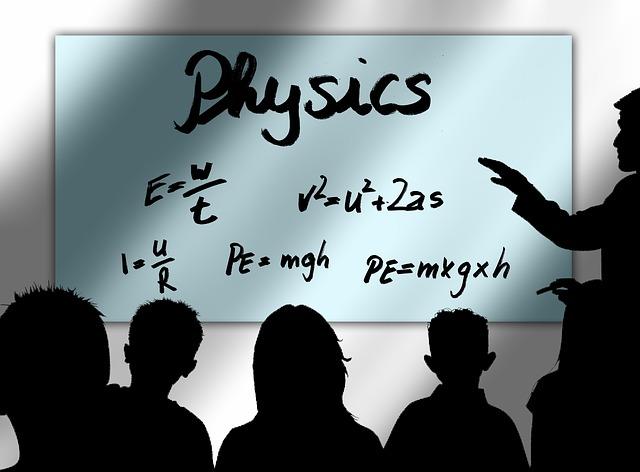Understanding the Importance of Physics Whether it’s the fundamentals of fluid mechanics such as Archimedes’ principle that dates back to its discovery in 250BCE or the pursuit in quantum mechanics that strives to prove quantum gravity, the drive to understand the laws that govern our universe have been a common theme throughout the ages. But[…]
13 March 2020∙7 minutes reading time
Your Guide to Magnetism, Electromagnetism, and Electromagnetic Induction. In the modern world, we use magnets in an overwhelming number of different ways. From the way that a fridge door closes to the way in which your headphones play music, from the generation and transmission of electricity, to the motor in your car. All of these[…]
25 November 2019∙7 minutes reading time
Everything You Never Asked about the Science of Waves. Without waves there would be nothing. No heat, no light, no sound. Not even any movement. Not a single thing. Because waves aren’t just some abstract scientific concept – or something that you only see on the surface of the ocean. They are literally everywhere at[…]
21 November 2019∙6 minutes reading time
Need help learning Physics?
Our series of articles have been written to help you understand this complex science.
Read all about the different topics covered in the Matric exams and get revision tips and resources.
Check out Superprof’s Physics tutoring profiles in Cape Town, Durban, Johannesburg, Pretoria, and Port Elizabeth for Physics lessons.
Choose an online Physics tutor on Superprof to help you study for your Physics exams.
An Introduction to Everything about Space. There is a reason why even the most ancient humans were amateur astronomers, mapping the orbit of the moon and the movements of the stars. There’s a reason too that kids are as fascinated by space as they are by dinosaurs, thinking about the Big Bang, distant galaxies, and[…]
21 November 2019∙7 minutes reading time
How to Study Physics Effectively Learning is a lifelong journey. We continually discover new concepts, and the joy of learning is never-ending. For the curious mind, there are various disciplines, including mathematics, language arts, economics, biology, chemistry, and physics that offer valuable insights into how the universe operates. In this article, you will find out[…]
28 January 2019∙7 minutes reading time
How to Teach Physics For Kids Does your child know what the periodic table is? Do they understand gravity, magnetism or states of matter? Do they know who Isaac Newton is and all about Newton's law of motion? Have you ever talked to your child about Earth and planets in our solar system? If the[…]
21 December 2018∙9 minutes reading time
GCSE Physics Syllabus: All the Topics at a Glance "Science is beautiful when it makes simple explanations of phenomena or connections between different observations. Examples include the double helix in biology and the fundamental equations of physics." -Stephen Hawking In the United Kingdom, secondary school students have a wide variety of GCSE subjects to choose[…]
3 December 2018∙10 minutes reading time
Delving Into Physics
The subject of physical science was introduced to help us understand the physical world. Through physics, we discover more about the concept of matter: its fundamental constituents and properties, its motion and behaviour through space and time, and how it is related to energy and force.
Physics is a fundamental academic discipline that is student by many students at high school level. Students who develop an affinity or interest in physics, often decide to further their understanding at university level. Let’s discuss the topic of physics in some more detail.
Why Study Physics?
If you didn’t study physics at high school and are now an adult learner, are you on the fence about whether you should dedicate your time to gaining an understanding of physical science? If so, here are three reasons that should convince you to give physics a second chance.
Firstly, physics concepts play an important role in many important subjects such as chemistry, oceanography, and astronomy. So, if you want to learn more about any of these subjects, you’ll have to know the laws of physics.
Secondly, physics students gain many transferrable skills that will benefit them in the future and help them to find jobs. For example, physicists hone analytical, problem-solving, data collection, and revision skills.
Thirdly, if you’re good at the sciences and you’re looking to earn a good living, physics careers, relative to certain other fields in the science world, can be quite lucrative.
These motives to study physics should help you to focus on the positives rather than on how difficult physics is as a subject.
What are the Branches of Physics?
Since it would be impossible to group all the laws and explanations of physics into only one category, there are seven primary branches of physics that are covered by students. These are mechanics, thermodynamics, vibrations and waves, optics, electromagnetism, relativity, and quantum mechanics. All of these learning areas have smaller sub-topics that can be reviewed by students.
Jobs in Physics
If you loved your study of physics so much during high school that you decided to continue learning at a university level, you are, no doubt, preparing yourself for a stable job in the sector of physics. But, what are the most common jobs for physics majors after graduation?
Physics graduates are employable across various sectors because the skills they’ve honed are transferrable and useful for many jobs and industries. However, if you want to stay close to your roots, the most typical employment opportunities in the field of physics include design engineer, high school physics teacher, applications engineer, data analyst, design engineer, accelerator operator, data analyst, professor of physics, IT consultant, lab technician, and engineer. After graduation, most job-seekers with physics degrees have no trouble finding employment.
Top Tips for Studying Physics
Are you in the last year of your degree and finding it hard to keep your head above water to pass your physics examinations? Are you struggling to comprehend basic physics concepts as an adult learner? Since physical science is such a diabolical academic discipline, it comes as no surprise that many of us face difficulties when revising physics.
Thankfully, there are suggestions from those with more experience on how to ace physics like a boss.
First and foremost, you need to master the basics of physics like velocity, distance, development, and kinetic energy, because without a solid foundation there is no way you’ll be able to advance to more complex topics such as quantum physics.
Thirdly, talk with other physics students by joining study groups. The frank conversations and brainstorming sessions you’ll have with other like-minded learners will add variety to your study routine, while at the same time helping you to fill any gaps in your learning. If you follow all three of these suggestions, you’ll ace physics like the champion you are!
The study of physics expands one’s knowledge of the physical world, and students should therefore do all they can to effectively learn the laws of physics.








